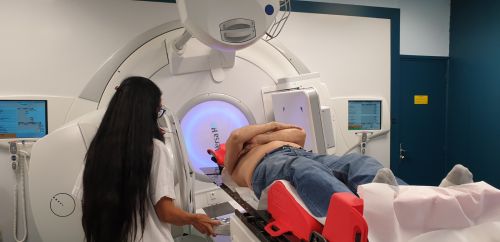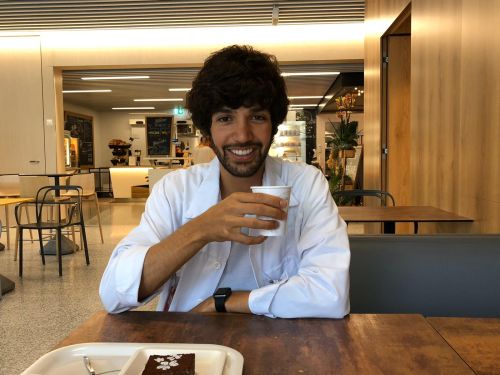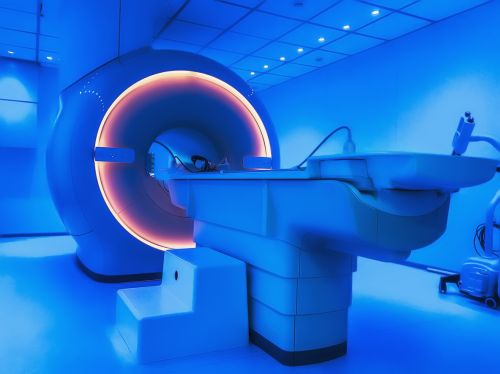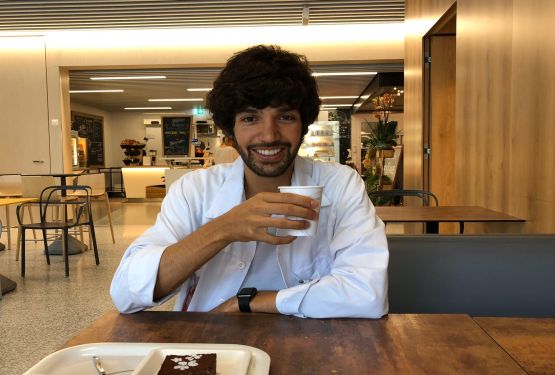France's leading oncology center – the Center of High Energy, located in Nice, is famous for being one of the most advanced oncology treatment facilities in Europe. The clinic’s directorate permanently monitors the latest scientific researches in oncology, while the doctors of this medical institution perform their own researches and regularly publish scientific articles on cancer treatment and innovative technologies in oncology. Oncological center spares no finances for investing in the latest devices, as they understand that the new devices are more advanced and сan guarantee the maximum safety and cure for this terrible disease.
We have spoken to oncologist Troussier to learn more about the oncology treatment in France and in particular, about how it is performed in advanced oncological centers, such as the Center of High Energy in Nice.

What is the difference between oncology treatment in France and other developed countries? Where is oncology best treated?
- I have been doing an internship in Switzerland, and I can assure that France and Switzerland practice identical therapies, which is understandable, after all both countries are at the same level of development. It is wrong to compare the level of treatment in different countries, as it mainly depends on its possibilities. Someone can offer their patients an innovative stereotactic procedure, someone not, but something must be offered to the patient in any case, so the country's protocols depend primarily on the possibilities. Of course, such factors as the level of the country's economy and development play an important role, so as the country's Medicare, which is also very important. But even when the developed countries’ treatment protocols are the same, the price might significantly vary. French oncology treatment methods can offer the latest innovative technologies and an affordable price.
The main types of cancer treatment in the world are surgical interventions, radiotherapy, and chemotherapy, what distinguishes oncology treatment in France?
- Let me point out that in some countries of Africa, even radiotherapy doesn’t exist, as the devices of the old generation and their maintenance are costly. In France, the assessment of the quality of oncology treatment is not based solely on survival, as survival in oncology is a separate topic. Of course, when a person finds out that he is sick, he just wants to survive and at the moment doesn’t think about how he will be living during the treatment and, most importantly, after it. In France, the main goal is not only to cure, as in many other countries, but also to make sure that the treatment process doesn’t cause psychological traumas, and after treatment, the patient could live for a long time not being afraid of relapse or treating his crippled by serious therapy health. In France, there is even a law called “RIGHT TO BE FORGOTTEN”, which states that the patient is not obligated to tell anyone, after a certain period, that he had an oncological disease.
Indeed, the main types of treatment remain surgery, radiation and chemotherapy, but the ways it performed 10 years ago and today, are completely different. Nowadays, chemotherapy is offered of local action in pills, radiotherapy has become so smart that it acts with the accuracy of one pixel and doctors can clearly see what dose is delivered to the tumor and nearby organs, which is very important, much more important than any patient can imagine.
During the treatment, the patient listens to his doctor, as he is in a delicate position, but not all doctors will go into detail and explain everything to the patient, so it may seem that patients are treated the same way everywhere. But even in France, many doctors have their own approach. Of course, the main therapy will be based on the treatment protocol, but there are small details that can change absolutely everything. For instance, these days some cancers no longer necessarily require surgical intervention. This applies especially for prostate cancer, where everyone knows the negative consequences of surgery and prostate removal. The surgeons in France no longer practice conventional open surgery, they use robots, which significantly reduce the risk of harmful effects, but do not remove them completely. We, on the other hand, insist on the stereotactic procedures in the case of prostate cancer and believe that surgery is outdated. But we do have a device to offer these procedures to the patients, while if the clinic has only Da Vinci, the patient will be offered surgery. Now you can clearly see that surgery is discordant, and what is offered is only what they have. The patient will not always be told about all possible options, but only if he asks for them because it is energy-intensive and takes a long time. Therefore, the treatment that can be available is offered.
You are a young doctor, in medicine most of the patients are skeptical about
young doctors, believing that those have little experience. Have you felt a lack of trust from patients?
- It is true, a young doctor or a female doctor, some patients tend to show distrust. This is especially when taking into consideration such a serious discipline as oncology. As to whether these fears are justified, I can’t say, as there are many examples when a female surgeon was a master of her discipline contrary to stereotypes. I was in the top 20 students of France, published more than 20 scientific studies, received the Monaco Prize for the contribution to the development of oncology, not many doctors even with great experience can boast of such a track record. Moreover, young professionals are more open to innovative types of treatment and offer a more individual approach in the selection of therapy, offering much more time to the patient, which can’t be said about the "doctors of the Old Believers" whom we call "paternalists". I have more than nine years of practice in the field of oncology, I am enthusiastic about my work, my work is my lifestyle and my life in general. My patients for me are literally "ALL" and in my list of healthy patients are tens of thousands of names, behind each of these names, there is a history.

Tell us about the oncology treatment cases that you remember the most.
- I will never forget a man who had a prostate resection and he cried as he began to suffer from urinary incontinence and erectile dysfunction after surgery, the life of a young patient (52 years) turned into a nightmare. It was this case that led me to research in the field of therapy to avoid surgery. Although surgery is a radical and effective treatment, it can lead to a deterioration in the quality of life in the future, for example, after partial resection of the lung, because the respiratory function of this organ will be weakened and the patient will actually become disabled. Nowadays, there are techniques to avoid surgery, I always consider the option of treatment with full preservation of the organ.
The next story of one pianist who had oncology on his finger, the doctors have all been consistent that amputation was necessary, the patient was begging me to come up with something, so we tried new stereotactic radiosurgery, and we succeeded!
Young and dynamic French oncologist Idriss Troussier will tell the world about himself, his views on oncology and patients are to be role modeled. The advice given by oncologist Troussier is not to lose your temper, not to give in to fear at diagnosis and not to rush to the surgeon. It is very important that the strategy of the chosen treatment is optimal for the patient, and not for a certain doctor. Take a second opinion, consult with different specialists, do not rush to go under the knife, as there are a lot of effective medical methods for the treatment of oncology today!
On our website, you can ask a question to oncologist Dr. Troussier.
Scientific works by Idriss Troussier.
Immune checkpoint inhibitors and stereotactic radiosurgery(SRS) in brain melanoma metastasis.
Background: Significant advances have been made in the treatment of metastatic melanoma through immune control therapy (ICT), such as anti-CTLA4 and anti-PD1 therapy. However, data on the use of ICT in combination with brain radiation therapy are limited. In this study, we reported possible toxicity and efficacy for patients undergoing the simultaneous use of ICT and radiosurgery using a gamma-knife.
From the institutional database, we identified all patients with brain metastases from melanoma who received gamma-knife radiosurgery who received ICT with anti-CTLA4 or anti-PD1 during the 12-week SRS procedure period.
Results: From January 2014 to December 2016, 62 patients with 296 lesions and 55 patients (88%) were included. had a constant ICT during exposure. The average observation time was 18 months (13-22). The minimum average dose at 50% of the control isodose was 18 Gr, with an average tumor volume of 0.22 cm3. The median of healthy tissue, which received 12 Grams per hearth, was 1.04 cm3. 10 patients (16.1%) were having adverse symptoms of all degrees after irradiation, with a 5th degree of 3, and one patient was having radionecrosis. The 1-year control rate for the irradiated hearth was 90%. Thirty patients (48%) were having distant metastases in the brain after a median time of 3.2 months after the GC procedure. By the time of the analysis, 35 patients had died. The median OS was 14 months from the day of radiation treatment. Median OS in the subgroup receiving ipilimumab (n = 35), nivolumab (n = 15), multiple immunotherapy(n = 8), was respectively: 13 months, 14 months, 13.5 months; and was not achieved for the subgroup Pembrolizumab (n = 12). In a one-dimensional analysis, the prognostic factors of OS were: DS-GPA score ≥3 (p = 0.022), the number of irradiated lesions (p = 0.0011), localization in the brain stem (p = 0.013), total volume (p = 0.01) . ), previous irradiation (p = 0.05).
Conclusions: Joint treatment with gamma-knife radiosurgery and immunotherapy for the metastasis of brain melanoma is safe and shows favorable results in this pathology.

Treatment of locally spread the cancer of the anal canal using intensity-modulated radiation therapy and simultaneous chemotherapy.
The best treatment protocol for locally spread (stage II-III) squamous cell carcinomas of the anal canal (SCCAC) is simultaneous chemotherapy and radiotherapy, providing 36-45 Gr to the planned amount of preventive planning with an additional increase of 14-20 Gr for large-volume tumors with or without a gap between these two sequences.
Although 3-dimensional conformal radiation therapy has led to suboptimal tumor coverage due to field connections, this method remains the standard of medical protocol.
New methods of radiation therapy with intensity modulation (IMRT) have improved tumor coverage by reducing doses delivered to the risk organs. Sparing healthy tissue leads to less acute toxicity.
Therefore, IMRT can potentially avoid the period that may increase the risk of local failure. These methods also reduce severe late gastrointestinal toxicity, as well as improve the functional retention of the anorectal sphincter. This report aims to provide a critical overview of current trends in the management of locally spread SCCAC using IMRT and simultaneous chemotherapy.





